LOWER SCHOOL
PRESCHOOL 3 THROUGH GRADE 5


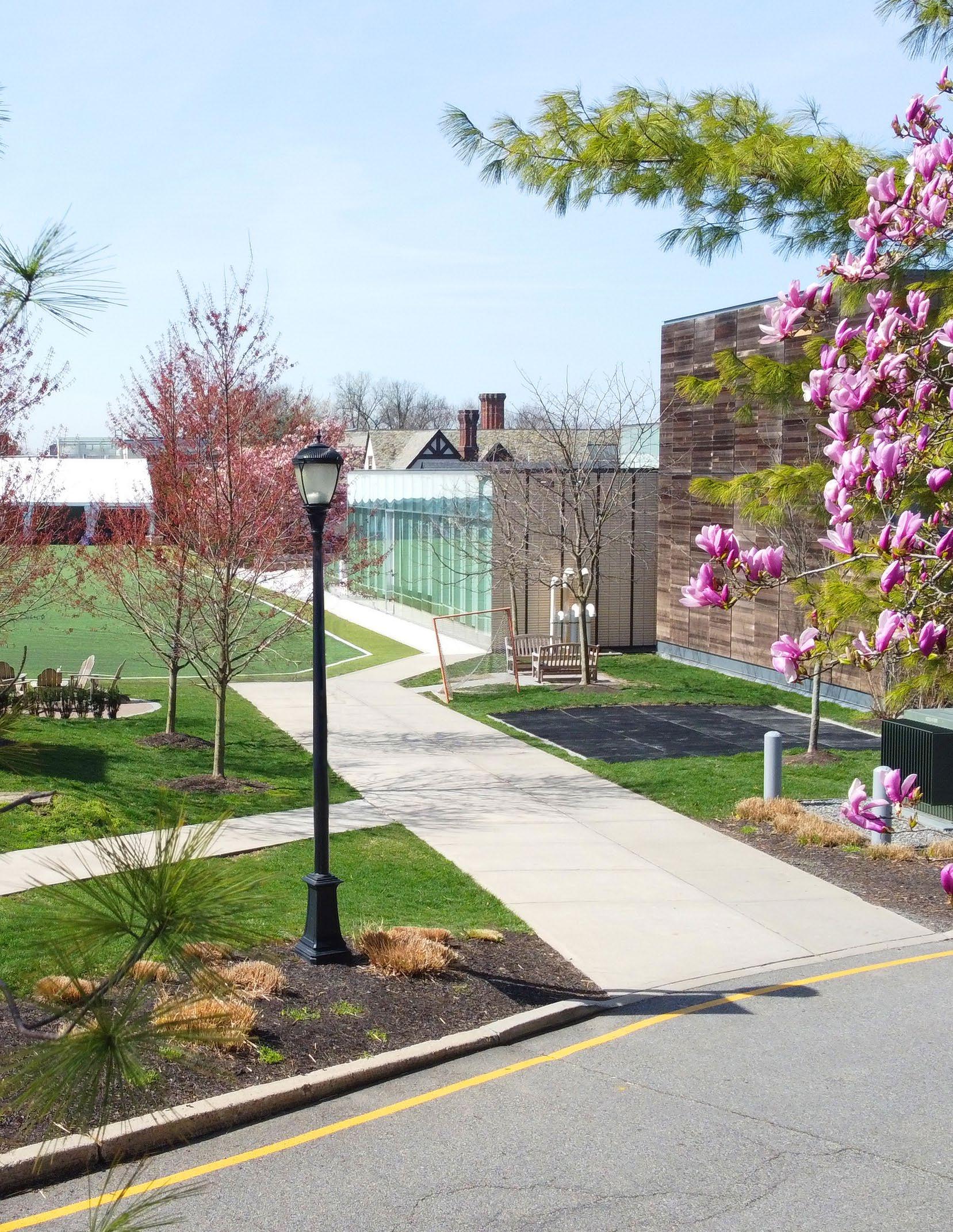




We are thrilled you are considering being a part of our learning community!
Dear Families,
Welcome to Dwight-Englewood’s Lower School, where learning is more than just a series of lessons - it’s a journey of discovery and growth. That journey is guided by our mission statement, to help students cultivate the “skills, values, and courage to meet the challenges of a changing world and make it better.” It means that children are developing fundamental content knowledge and skills, while also tapping into their unique interests and shaping their sense of purpose. Every day, our exceptional faculty and staff work to ensure students are supported and have the resources they need to thrive now and into the future.
Serving children of ages 3 - 11, our Lower School programs are anchored in essential skill-building and well-rounded experiences that prioritize the cognitive, social, physical and ethical development of children. Students are engaged in a wide variety of learning experiences where they are perennially expanding their horizons. On any given day, you may observe:
• Pre-school students learning how to socially negotiate with one another while collaboratively playing;
• First grade students strengthening their reading fluency and writing their own stories to communicate with the world;
• Third grade students getting involved with local organizations to make an impact on their immediate communities;
• Fifth grade students expanding their mathematical concepts to solve increasingly complex problems in both creative and efficient ways; and
• Students of all ages engaging in performing and visual arts, health and wellness, and STEM activities to help them experience the interconnectedness of our world.
What makes all of this possible at D-E is that educators, too, are students. We are students of how children learn best and what they need in order to thrive. Teachers regularly reflect on their instruction and stay current with evidence-based practices to directly impact learning outcomes. This approach allows us to respond thoughtfully to each child - helping them cultivate their confidence, resilience, and a love of learning that endures. And along every step of a child’s journey, we embrace ongoing and open communication with families, trusting that students are likely to be at their best when the adults in their lives - both at home and at school - are supporting them in tandem.
You can always view what’s current in news from the Lower School on our LS Notes eNewsletter.
Truly, there’s no better way to understand what makes our learning community so unique than to see our students in actionlistening to their questions, witnessing their curiosity, and observing the way they make meaning of the world around them. To that end, I hope you’ll visit us to observe firsthand how we nurture the whole child as we help children think deeply, act with purpose, and lead with compassion and courage!
Sincerely,
James Choi
Lower School Principal
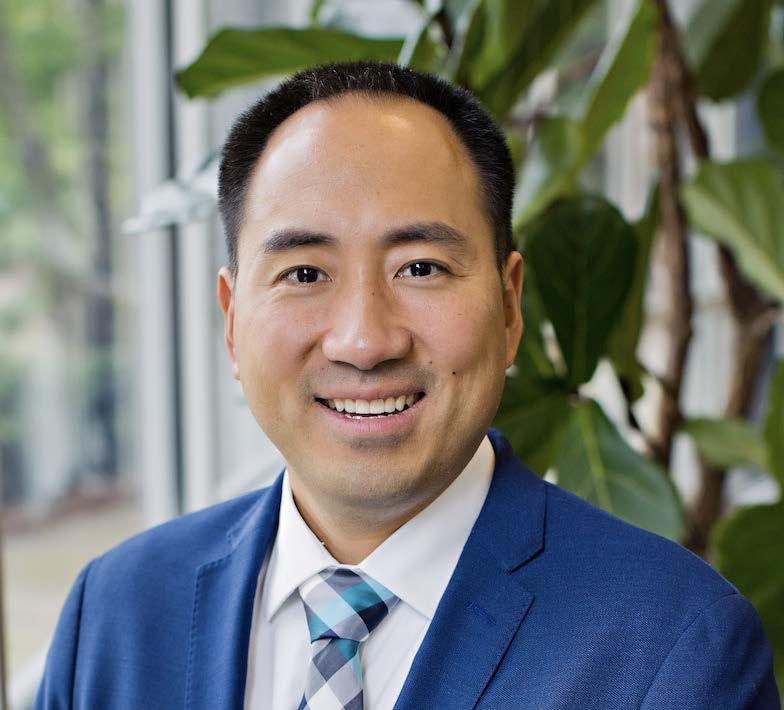
With kindness and a friendly smile, teachers welcome our youngest learners into a new world filled with the wonder of friends, sensory play, art, singing, storytelling, blockbuilding, dramatic play, and outdoor expeditions. Children are introduced to numbers, counting, and patterns, and are gently exposed to letter sounds and rhyming.
In Preschool 3, children are deeply absorbed in individual or parallel play. They can express emotions in both bold and restrained ways; they can be adventurous in spirit or quite wary. Our teachers welcome the opportunity to connect with young children and help them feel comfortable forming new relationships outside of the context of family life. Teachers also learn what the children are passionate about, nurture those interests, and provide stimulating materials with which the children express themselves.
Many times they are engaged in conversation with friends before unpacking their backpacks, as peer relationships become a central developmental theme. They enter the room ready to delve into an activity. They relish the newness of each school day and often connect back to family life by sharing important news about home.
In a nurturing environment, Preschool 4 teachers stimulate the growing curiosities of their students. They observe what the children are drawing, discussing or building, and offer opportunities to further explore the area of interest. The children increasingly engage in complex, collaborative play, while also learning how to problem-solve. In their print-rich classroom, children work on letter formation, enhance their sound recognition, and build upon their number sense. The teachers encourage hands-on exploration and creativity in an atmosphere where children can grow and learn at their own pace.

LIBRARY
MUSIC
SPANISH
SCIENCE
HEALTH AND WELLNESS
The knowledge that forms the foundation for reading and writing is built through formal and informal experiences with language and print. The International Reading Association states that while the ability to speak develops naturally, the ability to read and write does not. Therefore, young children need regular interactions with print and teachers who carefully plan experiences that support emergent literacy. In our preschool program, the starting point is their own voices: the sounds, words and sentence structure they use with one another and their teachers everyday. Listening and talking, interacting with one another, singing, dramatic play: these are the experiences that build vocabulary, learn the rules of conversation, and learn how to sustain attention and express their ideas. Presenting literacy in a playful way - as well as acknowledging students in early childhood will be ready for formal instruction at different times - provides many opportunities for learning and growth in Preschool 4.
OUR KINDERGARTEN PROGRAM IS THE BRIDGE FROM PRESCHOOL TO THE ELEMENTARY PROGRAM. KINDERGARTEN CHILDREN ARE ENCOURAGED TO CONTINUE TO GROW SOCIALLY, EMOTIONALLY AND INTELLECTUALLY.
Five-year-olds are ready to take on more independence and are increasingly invested in the world of school. They eagerly discuss ideas, learn to listen to each other and answer questions relating to a specific topic. They want to emotionally connect to their teachers and peers and often show pride in their work.
Kindergarteners are ready to branch out beyond the classroom and are better able to manage transitions. They attend special area classes daily. These classes include art, library, music, science, Spanish and health and wellness class. They also have opportunities to engage with and explore technology.
Our Kindergarten teachers are keenly aware that children in their care represent a wide range of learners. They take care to balance the children’s developmental need for exploration and play with the children’s increased readiness for structured lessons and learning routines. Kindergartners see Reading Workshop and Writing Workshop on the daily schedule for the first time. Phonological awareness, letter-sound correspondence, genre study, and lots of time reading, listening to and talking about many different types of texts are important features of kindergarten literacy. Students work independently, in small groups and as a whole class. Formal instruction is grounded in Words Their Way and the Teachers College Reading and Writing Units of Study. Differentiated instruction in the areas of literacy and mathematics is a hallmark of the Kindergarten Program, thus making Kindergarten a critical springboard for learning experiences in Grades 1 through 5.

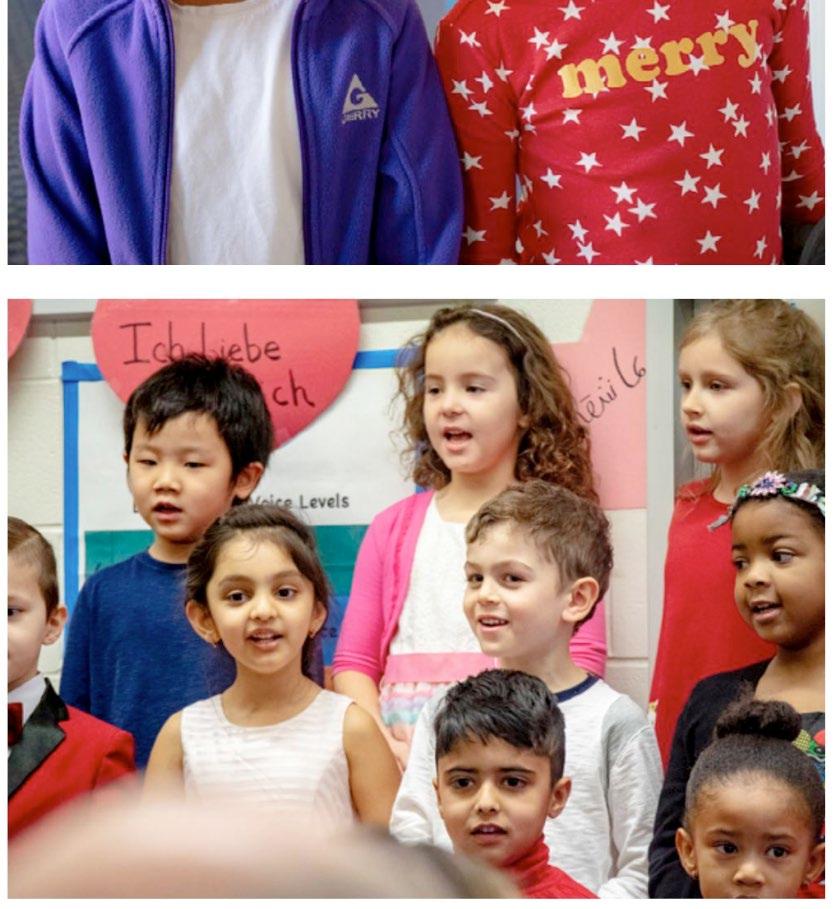
WE GUIDE OUR STUDENTS TO DEVELOP THE UNDERSTANDING AND HABITS OF MIND NEEDED TO BECOME INDEPENDENT LEARNERS WHO ARE ABLE TO TRANSFER THE SKILLS AND COMPETENCIES LEARNED TO NEW AND UNFAMILIAR SITUATIONS.
Grades 1 through 5 provide a strong foundation for success in our Middle and Upper divisions. Our vertically integrated curricular program starts here and is designed by our Lower School faculty to lead seamlessly into Grade 6.

To many of us, D-E once seemed like a regular school, like any other. But now we are getting ready to leave Lower School, and we realize this school is special, and we are proud to be part of this community.
Among many things that I have learned at D-E, l have learned that D-E is a school that supports and encourages student driven projects and ideas.


Solving problems is at the heart of the Lower School mathematics curriculum. We place consistent emphasis on deep understanding of essential math concepts and mastery of age-appropriate skills at each grade level.
We help our students connect their experiences of the real world with the skills they need to solve complex problems with understanding and facility.
Our mathematics program uses the research-based Singapore Mathematics approach, bridging the gap between concrete materials and symbolic notation with models such as ten frames, arrays, unit fraction pieces, and bar diagrams. New topics are introduced in a clear sequence and practical, real-life situations help students connect their learning to the world. Third graders, for example, use decimal measures to find the weight of a bag of groceries to donate to a local food bank, while fourth graders draw precise geometric figures, measure the sides and calculate the perimeter to the nearest tenth of a centimeter. Students gain increasing proficiency and a wider repertoire of strategies and models as they move through the grades. By 5th grade, students solve problems that sometimes stump adults! Student learning in the Lower School is also supported by web-based individualized mathematics software.
The pace of the mathematics program at the earliest grades is measured and deliberate; the result is a secure conceptual foundation, mastery of key skills, and a more rapid pace in older grades. By the end of 5th grade, students have mastered all operations on whole numbers, fractions and decimals, and they persevere through difficult multi-step word problems. They are well prepared to complete Algebra 1 in Middle School.
The Lower School literacy program believes the “how” of teaching is as important as the “what,” and central to the “how” is the idea of community.
In our classrooms, teachers build communities based on high expectations, trusting relationships and the willingness to honor and celebrate the needs of a full range of learners.
Grounded in the work of Teacher’s College at Columbia University, our literacy program is organized around a reading and writing workshop structure. We believe that foundational skills and understandings taught inside of the workshop are essential for a Lower School literacy program.
In the workshop, students work alongside their teachers and each other to develop and share ideas, ask questions, and listen. They learn that reading and writing are meaning-making activities in which we can all participate. In addition to the whole-class workshop, teachers work with small groups throughout the day. Through purposeful assessment, teachers can provide instruction targeted to more specific needs in phonemic awareness and phonics, vocabulary, writing conventions, comprehension, and expression of ideas.
As students move through the Lower School, they experience high quality, differentiated instruction, a range of texts, and a diversity of ideas. They develop an appreciation for and love of the printed word, as well as confidence in themselves and the willingness to embrace new and challenging work.
THESE SUBJECTS ARE HIGHLY VALUED IN OUR SCHOOL AND PROVIDE STUDENTS WITH EXPANDED OPPORTUNITIES TO LEARN, SHARE IDEAS, AND UNDERSTAND THEMSELVES AND THE WORLD AROUND THEM.
The social studies curriculum is organized around “big ideas” that students encounter with increasing complexity as they move through the Lower School. How communities allocate resources can guide a 1st grade study of houses and homes, and similarly focus a 4th grade study of World Peace Games. By organizing units around questions first and then skills and content, we communicate to students that learning about the past is inquiry-based: by asking and exploring good questions, we delve deeper into the topic.


The science curriculum is a vital part of the Lower School curriculum. Instead of science experienced through a textbook, Lower School children in our “Exploratorium” science classroom investigate the natural world outside their classroom, generate questions and search for answers. Students begin to develop the skills and habits of minds to be active and engaged problem solvers in an increasingly complex world. The Lower School garden is a resource for understanding and appreciating the natural world, as well as a concreteway to focus on sustainability.
Lower School students begin studying Spanish in our early childhood program. The focus of language instruction is meaningful and purposeful communication; thus language classes are conducted primarily in Spanish with opportunities for students to understand and speak it. Students are exposed to Spanish-speaking culture from around the world, past and present. Simulations such as ordering in a restaurant, asking for directions, and describing the weather promote a comfort level with speaking and a willingness to take risks as students learn a new language.
A well-rounded education includes extensive exposure to art and music, which helps children to make connections across disciplines, to develop interests and skills in a number of subjects and to build a rich, expansive world view. Faculty trained in art and music education provide an integrated, vertical curriculum and teach in spaces specifically designed for these subjects. The time and space given to art and music reflect the high value we place on these curricular areas as part of the Lower School experience and helps children learn to express themselves outside of their classroom work. In fifth grade the art and music curriculum culminates in a year-long, integrated “Creating Original Opera” program in which students write, compose, design and perform their own opera.
Health and Wellness classes provide a time for students to be active, to learn to problem-solve, to collaborate and to develop motor and planning skills in the setting of traditional and nontraditional games. There is always an emphasis on having fun and learning good sportsmanship.
A well-coordinated library program and well-stocked library support all areas of the Lower School curriculum. While each class has its own classroom library, additional resources in the library ensure the Lower School has ample literature to support a wide range of interests and curriculum topics. The librarian introduces readers to new genres, unfamiliar authors and contemporary texts, and works closely with teachers to match books to readers and writers. The library is also a central location where students learn research skills and have opportunities to study topics in depth.
In 5th grade, a STEM program is introduced. Building on what came before in the science classroom while anticipating what comes next, students use and apply the tools and principles of science, technology, engineering and mathematics to think, collaborate, ask questions, solve problems and create while under the guidance of the Lower School STEM leader.
Technology is embedded into all areas of the curriculum, with specific skills at each grade level. Lower School students use technology in ways that support creativity, critical thinking, and sharing ideas in new and flexible ways. iPads and laptops are readily available for students. SMART boards, as well as wireless classrooms, integrate the use of technology into all aspects of the classroom.
The concept of a larger world and the need to help others are introduced in the Lower School. Children collect food and toys for the needy and participate in relief efforts. Students who want to run a fundraising campaign must first present their idea and plan to a Senior Leader of the Fundraising Council, which connects them to Upper School students who are adept at fundraising and who help them polish their plan.

Guided by the Mission of Dwight-Englewood School, Lower School teachers strive to create classroom communities in which every child feels cared for, valued, and known. We believe that when students feel connected to one another and their school, they are more engaged and invested in their learning.
Teachers help students work towards shared goals, find common interests and make sure there are opportunities for students to recognize that they are a part of something larger than themselves. “We are a community in so many ways,” explains kindergarten teacher, Tricia Fiore. “There are many different ways in which we connect. In the classroom, it’s our morning meeting where the students get to know one another. As a grade level, we connect as colleagues when we look at our curriculum and plan. As a kindergarten community, we eat, play, learn and celebrate together. As a Lower School division, we learn together in our faculty meetings and assemblies. As a school, we meet and join together around the arts, sports and events that foster a sense of a whole-school community.”
A Lower School teacher understands relationships are essential. Working together to understand and follow student growth over time, teachers look closely at the whole child and families are encouraged to connect with teachers “early and often.” Our teachers’ deep understanding of child development informs their instruction. Whether in the classroom, play spaces or special area classes, they pay close attention to how children think, learn, work and play so that they can connect and respond to them as learners and as people.
We believe the best professional development is ongoing, collaborative and directly connected to work with students. “It’s why I am here,” says teacher Doran Muus; “I have been teaching many years and this school recognizes there is always more to learn and that’s something I want to be a part of.” A faculty meeting might find science, music and classroom teachers studying critical thinking, the role of executive functioning in learning, health and wellness in a Lower School curriculum or the Responsive Classroom approach. Teachers share knowledge and expertise with one another, as well as with families, to make sure our whole community learns together and improves our practice at a pace that tries to match that of our rapidly changing world.




THE DWIGHT-ENGLEWOOD PARENTS’ ASSOCIATION IS AN ACTIVE, OPEN VOLUNTEER NETWORK OF PARENTS AND GUARDIANS WHO WORK TO SUPPORT THE SOCIAL, CULTURAL AND ACADEMIC LIFE OF THE D-E COMMUNITY.
Lower School Parents’ Association (PA) initiatives are both varied and extensive, providing ample opportunities for caretakers and family members to support and share the rich and exciting Lower School years.
The Lower School PA sponsors events that range from those held to benefit student life and enrichment, to those that foster parent-to-parent connection and engagement within the community, to those that demonstrate appreciation for the faculty and staff.
There is a robust PA class representative team structure that supports grade level activities and parent community building. Some of the events sponsored by the Lower School PA are: the Welcome Gathering, Book Fair, Ice Skating Party, Halloween Party, Talent Show, Spring Fair/ Carnival, Yearbook, Photo Day, Teacher Appreciation, and Parent Forums.
For an up-to-date listing of current Parents’ Association initiatives, please visit the website at: http://pa.d-e.org/
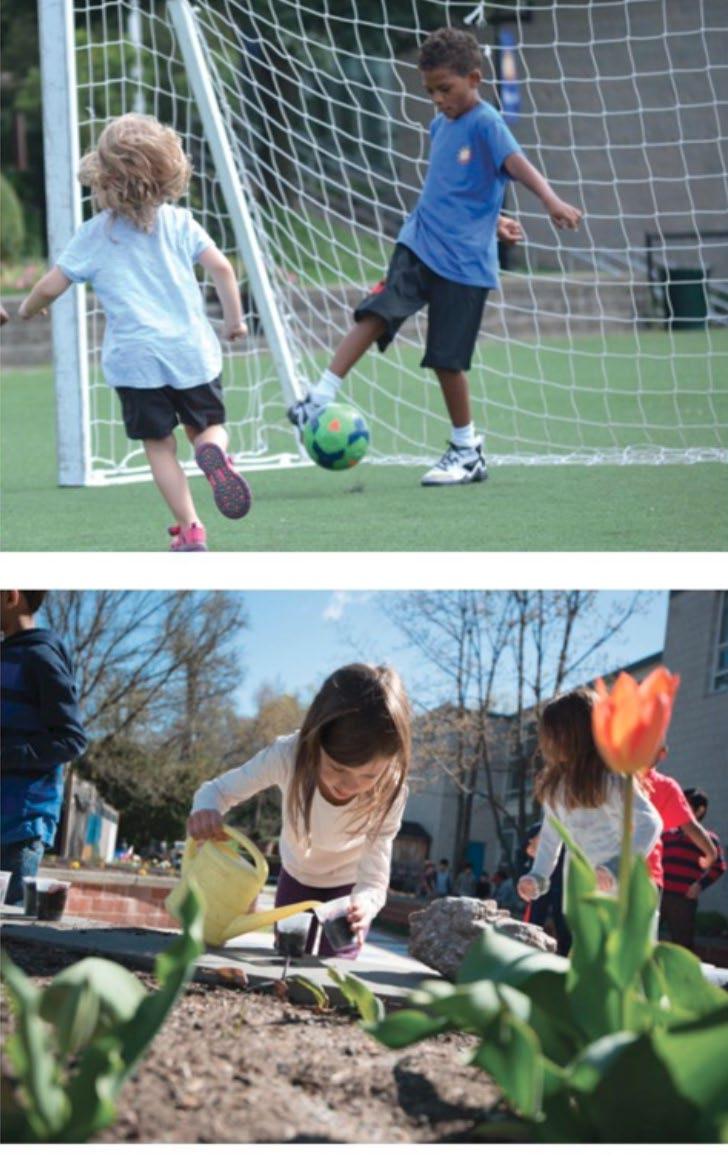
ACE welcomes curiosity, movement, and messy learning! An extension of the school day, ACE students head down to our after school Clubhouse for a few hours. It’s a place for our Lower School students to explore, specialize or just make friends in a fun environment.
Our Preschool & Kindergarten program teachers work closely with the Lower School faculty to make this end of the day transition smooth and familiar. Our classroom norms are consistent, meaning that there are familiar threads of the daily routine pulled through. And our 6:1 teacher-to-student ratio assures that every student is known and engaged. Their regular activities include; snack, music, science, yoga, theme weeks, and active play - including outdoors whenever possible.
Clubhouse (AfterCare) is an after-school extended day program for Dwight-Englewood (D-E) Lower School (LS) students in Preschool-Grade 5. The program runs daily during the school year from dismissal until 6:15 pm. Each day students have different activities that include cooking, drama, sports, music, and art with opportunities for homework help, indoor games, or outdoor play. Our faculty are comprised of D-E LS teachers and a wonderful staff. We make every day a fun day for the children.
Enrichment Specialty Classes are fun ways for D-E Lower School students to learn and play with their friends after school. Our faculty are dedicated educators who are passionate about sharing their expertise with your children to help them to try something new, pursue their interests, and develop their talents further. This year’s specialty areas include chess, fencing and private music lessons.

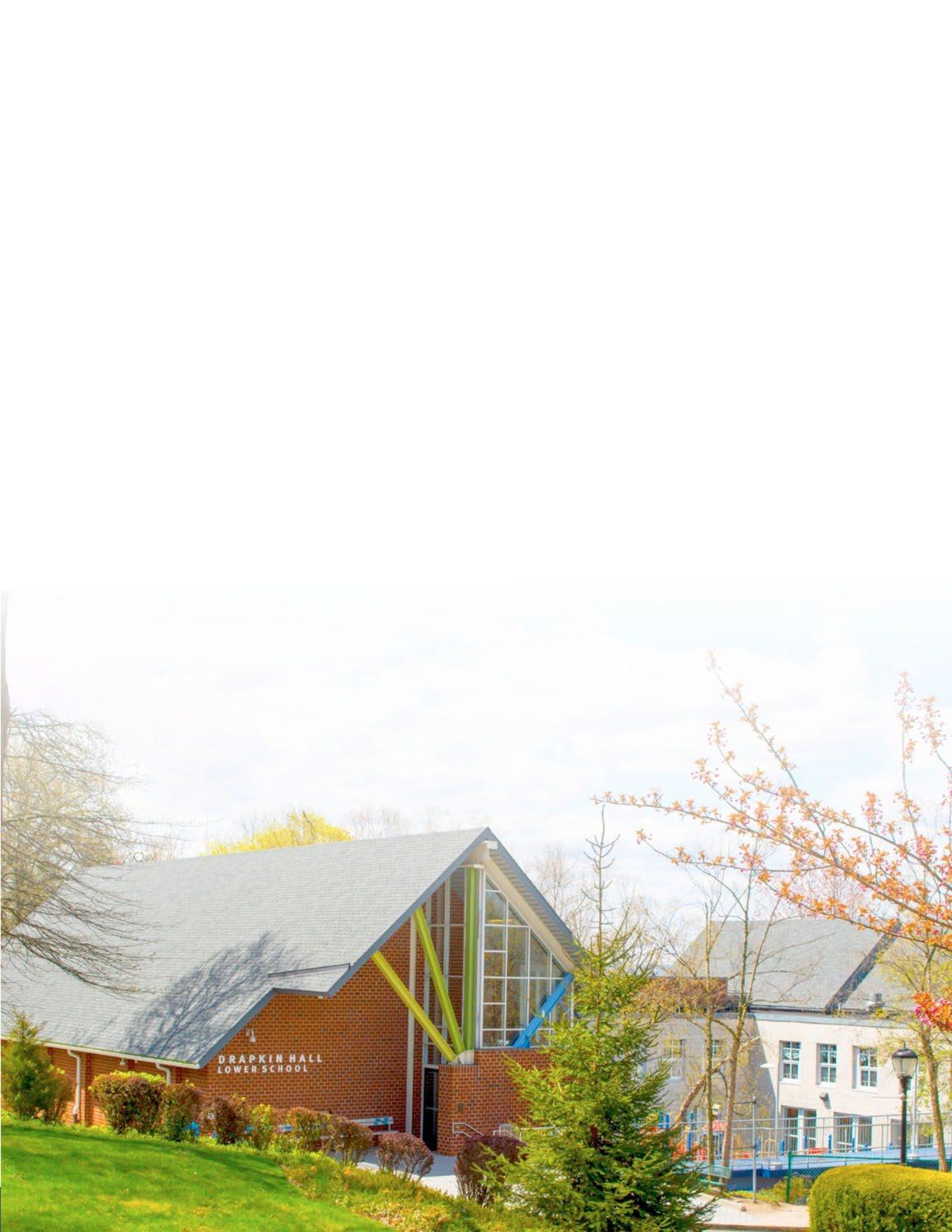
“
“ As a community of learners, Dwight-Englewood School strives to foster in each student a passion for life-long learning. We seek excellence, honor integrity, and embrace diversity in order to develop the skills, values and courage to meet the challenges of a changing world and make it better.
Jennifer W. Celiberti Director of Lower School Admissions
201.227.3121
Jeromh1@d-e.org